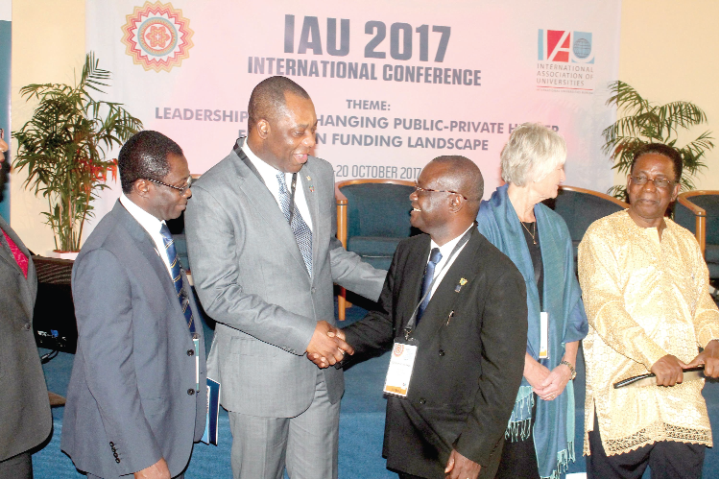
African universities score poorly in global ranking
No African university is among the world's best 300 universities, according to the current global university ranking.
Advertisement
The University of Cape Town, South Africa, which is the number one university in Africa, is ranked 303rd in the global ranking.
The number one university in Ghana — the University of Ghana — is ranked 1,983rd in the global ranking.
This came to light at the official opening of the International Association of Universities (IAU) 2017 Conference at the University of Ghana, Legon in Accra on Thursday.
On the theme: “Leadership for a changing public-private higher education landscape”, the conference is being attended by representatives from more than 60 universities worldwide and seeks to create a platform for networking and the exchange of notes.
Started in 1950, the IAU serves as a voice for higher education and seeks to promote and advance higher education globally.
Reaction
Reacting to the ranking, the Minister of State in charge of Tertiary Education, Prof. Kwesi Yankah, described it as “reinforcing the stereotype”.
He wondered about the kind of information that was fed into the ranking, citing, for instance, the fact that the IAU continued to rank the Central University, where he had been the third vice-chancellor, based on its first vice-chancellor.
He, however, challenged African universities to put their act together and work harder to advertise themselves in the global village, saying: “Africa has a huge potential in higher education which has been exploited only superficially.”
Way forward
On the way forward, Prof. Yankah charged African universities to constantly publish the dissertations and theses of postgraduate and doctoral students, instead of the current situation where most of such research were locked up in drawers.
He also recommended the marketing of African universities outside the continent, as well as the opening up of centres of global studies on other continents for networking with the Africa world.
Pulling African universities along
Prof. Yankah urged the IAU to revise its policies and encourage more African universities to both enrol as members and participate in conferences.
“Let such policies ensure maximum participation by host communities through the application of differential rates of enrolment and registration,” he said, adding that this year’s IAU conference, the first on African soil, “triggers dialogues and actions that will progressively narrow the intellectual gap between Africa and the rest of the world”.
He reminded the participants that the conference would achieve its optimal effect if innovative ideas in funding tertiary education were tabled for discussion at the various fora.
He said the conference outcomes should also reckon with the overall financial implications of networking within such an association made up of a diversity of nations and universities of varying global prominence.
Sources of funding
Welcoming the participants, the Vice-Chancellor of the University of Ghana, Prof. Ebenezer Oduro Owusu, said the exigencies of the time had made it imperative that a public university such as the University of Ghana look beyond the public purse for funding in order to survive and provide quality teaching and learning.
He said the advent of open online courses had compelled the traditional universities to invest massively in distance learning and other technological ways of learning.
Promote higher education
The President of the IAU, Prof. Pam Fredman, told the participants that they had the opportunity and the platform to promote higher education.
She said the future was a knowledge-based society globally, adding that it was the way to achieve Agenda 2030 of the Sustainable Development Goals.
Writer’s email: [email protected]



